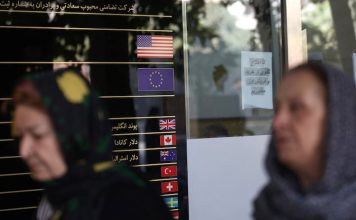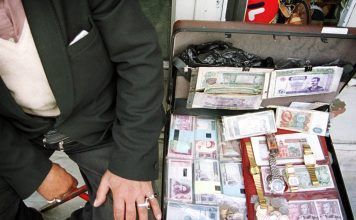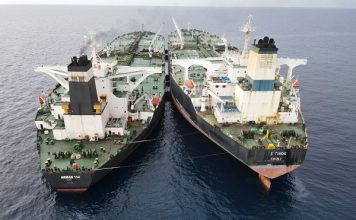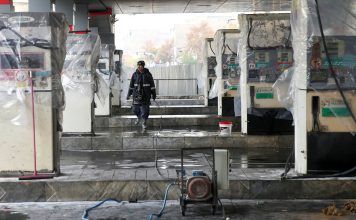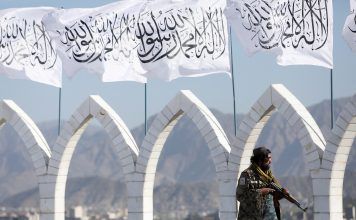By Kayhan Life Staff
The General Inspection Organization of Iran (GIO), also called the State Inspectorate Organization of Iran, recently released a 54-page report on alleged financial misconduct committed by the Mehr Petrochemical Company related to the disappearance of export exchanges, astronomical payments, financial corruption, and the disruption of the fuel supply chain.
The report differs from all other similar financial corruption cases because it involves an Italian investor. According to the report, compiled months ago but released recently, some 5,000 billion tomans ($170 million, at the exchange rate of 29,400 tomans to a U.S. dollar) in the export exchange has allegedly gone missing in the Mehr Petrochemical Company.
The Mehr Petrochemical Company’s management has reportedly been accused of disrupting the petrochemical, fuel, and energy supply chain for industries and urban centers during the cold months.
[aesop_image img=”https://kayhanlife.com/wp-content/uploads/2022/09/PETROSHIMI-MEHR.jpg” panorama=”off” credit=”Mehr Petrochemical Faces Financial Misconduct Allegations. KL./” align=”center” lightbox=”off” captionsrc=”custom” captionposition=”left” revealfx=”off” overlay_revealfx=”off”]
Domestic media have published segments of the GIO’s report, highlighting Mehr Petrochemical’s alleged role in creating energy shortages by disrupting the production and distribution of energy and fuel.
The most serious allegation against the company is its failure to return some $170 million in export exchange to the country for two and a half years.
Owners and executives of several major manufacturing plants and companies, which have moved into the private sector in the past few years, have been embroiled in financial corruption allegations.
A select group has allegedly been using some government-owned semi-private and fully privatized companies to funnel the country’s national resources into their own pockets. As a result, some of these businesses have experienced financial difficulties, forcing them to fire workers and sell company assets.
Iran Sentences Two Women to Death for ‘Corruption on Earth’- IRNA
Mehr Petrochemical produces the highest grade of polyethylene in the Middle East. The company is part of the Persian Gulf Petrochemical Industries Corporation (PGPICC), a public holding company covering an area of 13,000 hectares in the Second Phase of the Pars Special Economic Zone in the Southern Province of Bushehr.
The alleged financial misconduct of its foreign investors has reportedly brought Mehr Petrochemical to the brink of bankruptcy. The GIO has forwarded detailed findings to the Iranian Petroleum Ministry, the Majlis’ (Iranian Parliament) Article 90 Commissions, the PGPICC, and Iran’s Securities and Stock Exchange.
The GIO investigation discovered that after its privatization, 60 percent of the Mehr Petrochemical Company’s stock was owned by an Italian investor, $170 million in export exchange had gone missing, the company had an accumulated debt of $100 million, and some of its employees received astronomical salaries. It also found widespread insider trading, nepotism, and bribing.
A consortium comprising Japan and Thailand, which owned 60 percent of the shares, and the National Petrochemical Company, a subsidiary of the Iranian Petroleum Ministry, which owned the remaining 40 percent of the shares, founded Mehr Petrochemical Company in 2005.
The contract called for the Iranian side to provide petrochemical feedstock to the plant and for foreign investors to take turns managing the operation.
The main petrochemical feedstocks used in the industry are petroleum gases, naphtha, kerosene, and gas oil.
By 2018, Mehr Petrochemical Company had become one of Iran’s and the region’s best high-intensity polyethylene (HDPE) producers.
According to the GIO report, the foreign investors in the company said they intended to sell their shares to the Persian Gulf Petrochemical Industries. Subsequently, a team of experts reviewed the stocks and reportedly offered a low share price, which the foreign investor ultimately rejected.
As a result, the Persian Gulf Petrochemical Industries reportedly decided not to buy the 60 percent share of the foreign investors in Mehr Petrochemical Company. Therefore, Iran lost the opportunity to get 100 percent ownership of the company.
Subsequently, foreign investors, which had a proven record in the industry, sold their shares for the asking price and not the one suggested by the team of experts to an Italian investor with no prior experience in the petrochemical industry.
According to the GIO report, selling the company’s shares to a foreign investor had several issues, including the new shareholders’ background. The Italian investor reportedly claimed they had supplied equipment to NATO and acted as an advisor to the Italian defense minister.
In another development, after the deal’s completion, the Italian investor reportedly appointed the company’s new managing director Ali Hosseini, a member of the team of experts who valued the Mehr Petrochemical Company’s share. He was allegedly receiving a monthly salary of $26,000, reportedly included in the list of financial misconducts.
Mr. Hosseini resigned from his post on July 5, 2021. His successor, Mohammad Eslami, was reportedly removed from his post a few days ago, following a judicial order.
Reporting on alleged efforts to appoint Mohammad Eslami as Mehr’s managing director, the Tehran-based online Ensaf News in July 2021, said: “Watchdog organizations investigating misconduct by certain individuals compiled a report about his activities. Meanwhile, the individual, who has presented himself as a conservative and close to [President] Ebrahim Raisi’s camp, has been trying to become the managing director of Mehr Petrochemical with the support of a foreign company.”
The GIO reported widespread misconduct at Mehr Petrochemical after the takeover by the Italian investor and the appointment of a new managing director. The most serious allegation against the company involves its failure to return some $170 million in export exchange to the country for two and a half years.
“Ali Hosseini, the managing director of Mehr Petrochemical, was negligent in his duty to pursue the company’s rightful demands from the foreign shareholder,” the OIG report said. “Following a secret decision at a meeting of the company’s board of directors on March 20, 2020, he transferred the control of the petrochemical company’s surplus rials to the foreign shareholder.”
“The foreign shareholder had promised to accept all risks and protect the surplus money, at no extra fee, but has not fulfilled their commitments by releasing the funds at a crucial time when the company urgently needs the money,” the report added.
Another alleged misconduct involved an unpaid debt of 3000 billion tomans ($102 million) owed to Jam and Morvarid petrochemical companies.
Under the original contract, Iranian shareholders should have provided petrochemical feedstock to the company, which they fulfilled with no interruption. However, Mehr Petrochemical’s foreign investor and new managing director allegedly did not pay the company’s suppliers, resulting in $102 million in unpaid bills.
In a letter, Jam Petrochemical asked the Supreme National Security Council to help collect the money owed to the company.
“We call for an immediate investigation into suspicious activities by Mehr Petrochemical Company which could pose political, security and economic problems,” the letter said.
According to the OIG report, Mehr Petrochemical Company was allegedly involved in illegally buying and selling 1.454 billion shares in Bank Shahr, valued at nearly $15 million. It reportedly owned 220 million shares (1.4 percent of the total shares in Bank Shahr.)
Concurrent with injecting liquid capital into the investment market and fluctuating the value of Bank Shahr’s stocks, Mehr Petrochemical’s executives allegedly tried to create an unstable market by using their resources to form a joint venture with the financial and trade managers of the company. Mehr Petrochemical Company and a select group of people, including the relatives of the managing director, were allegedly involved in buying and selling shares repeatedly.
“The individual mentioned above and several managers of Mehr Petrochemical Company had access to final information on the securities stock market, and benefitted from trading [Bank] Shahr’s shares,” the GIO report said. “We urge the Securities and Exchange Organization of Iran to ask the judiciary to investigate this individual for potential criminal misconduct, given that Mr. Ali Hossein was under a contract with Bank Shahr as an advisor, subject to Appendix A of Clause 1 of Article 46 of Securities Market Laws of the Islamic Republic.”
Tehran Friday Prayer Leader Laments Corruption, Iran’s Fading Revolutionary Spirit
The GIO report also implicated Mehr Petrochemical company’s managing director and shareholder in disrupting the supply chain of petrochemical products.
“Halting production at Mehr Petrochemical Company would cause a drop in production at Jam and Morvarid petrochemical companies, followed by a similar trend at Nouri Petrochemical Company,” the GIO report said. “A drop in production at Nouri Petrochemical Company would reduce the production of gas condensate at the South Pars Gas Field; as a result, the country will face a shortage of liquid gas at the start of the cold months. Urban centers and industries will face fuel and energy shortages.”
The GIO report has sparked a legal battle between the organization and the company’s shareholders.
The GIO report has prompted the judiciary to order Mehr Petrochemical Company to appoint a managing director elected by the Iranian shareholders and halt the transfer of any products to foreign shareholders. Following a directive by the judiciary, Iranian shareholders appointed a new managing director, and no products have been released to the foreign shareholders, pending the payment of $170 million they owe the company.
The shareholders have filed a civil and criminal suit against GIO, the Iranian Companies Registration Office, the Islamic Republic Customs Administration, the International Petrochemical Industries Company, the PGPICC, its executives, and the current managing director of Mehr Petrochemical Company.
In a meeting with the GIP inspectors on Sept. 5, the head of the GIO, Zabihullah Khodaian, highlighted oil as one of the most consequential elements of the country’s economy. He urged the inspectors to fight corruption and nepotism in the oil, gas, and petrochemical industries.


